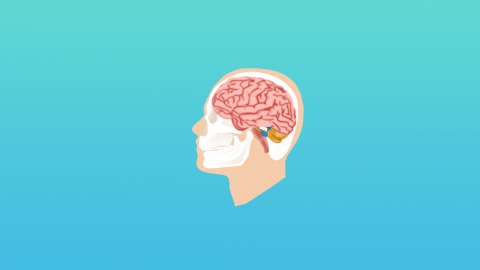Which medications can treat drooling caused by cerebral infarction?
Generally speaking, cerebral infarction can cause drooling due to damage to the facial or glossopharyngeal nerves, resulting in swallowing dysfunction and decreased coordination of oral muscles. It is often accompanied by symptoms such as facial deviation and slurred speech. Patients may take medications such as Cytidine Diphosphate-Choline Sodium tablets, Mecobalamin tablets, Vitamin B1 tablets, Galantamine tablets, and Butylphthalide soft capsules under medical guidance. Detailed explanations are as follows:
1. Cytidine Diphosphate-Choline Sodium Tablets
These belong to cerebral metabolism-improving drugs that participate in phospholipid synthesis, promote brain cell metabolism, repair damaged nerve cells, improve facial and glossopharyngeal nerve function, enhance oral muscle coordination, and reduce drooling. They are suitable for patients experiencing drooling during the recovery phase of cerebral infarction and can be taken long-term to promote nerve function recovery, aiding in improving swallowing and oral muscle control.
2. Mecobalamin Tablets
This is an endogenous coenzyme B12 that easily enters neuronal organelles, participates in nerve cell nucleic acid metabolism, promotes synthesis and repair of nerve myelin sheaths, and restores conduction function of damaged nerves. It is suitable for drooling caused by peripheral nerve damage from cerebral infarction, improving nerve-controlled oral muscle movement and alleviating drooling. It should be taken according to the prescribed course to consolidate therapeutic effects.

3. Vitamin B1 Tablets
This is a water-soluble vitamin involved in energy metabolism in the body. It nourishes nerve tissues, maintains normal physiological nerve functions, assists in repairing facial and glossopharyngeal nerve damage caused by cerebral infarction, enhances contraction and coordination ability of oral muscles, and reduces drooling. It is suitable for patients experiencing drooling during the recovery phase of cerebral infarction and is often used in combination with mecobalamin tablets to enhance nerve repair effects.
4. Galantamine Tablets
As a cholinesterase inhibitor, it inhibits cholinesterase activity, increases acetylcholine concentration in synaptic clefts, enhances neuromuscular junction transmission function, improves oral muscle coordination and swallowing function, and reduces drooling. It is suitable for patients with drooling and swallowing dysfunction after cerebral infarction. Dosage should be adjusted under a doctor's guidance to avoid gastrointestinal discomfort caused by overdose.
5. Butylphthalide Soft Capsules
These improve cerebral microcirculation, increase blood supply to the cerebral infarction-affected areas, reduce cerebral ischemic injury, promote regeneration and repair of nerve cells, restore damaged nerve function, indirectly improve oral muscle control, and alleviate drooling. They are suitable for patients experiencing drooling during both the acute and recovery phases of cerebral infarction, particularly effective for those with neurological deficits.
Maintain good oral hygiene in daily life, rinse mouth promptly after meals to avoid food residue causing oral infections. Under medical guidance, perform oral muscle training exercises such as puffing cheeks and extending the tongue to strengthen muscle strength. Choose soft, easy-to-swallow foods and avoid eating too quickly. If drooling persists or is accompanied by worsening difficulty swallowing, seek medical attention promptly to adjust the treatment plan.




